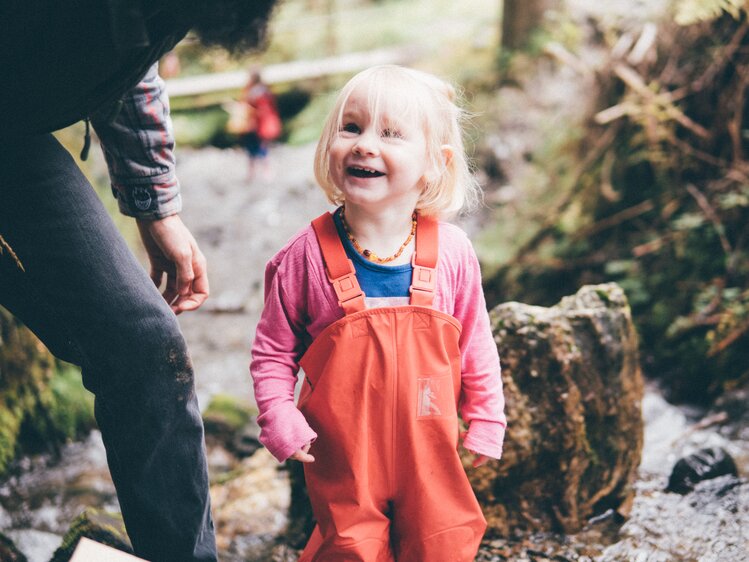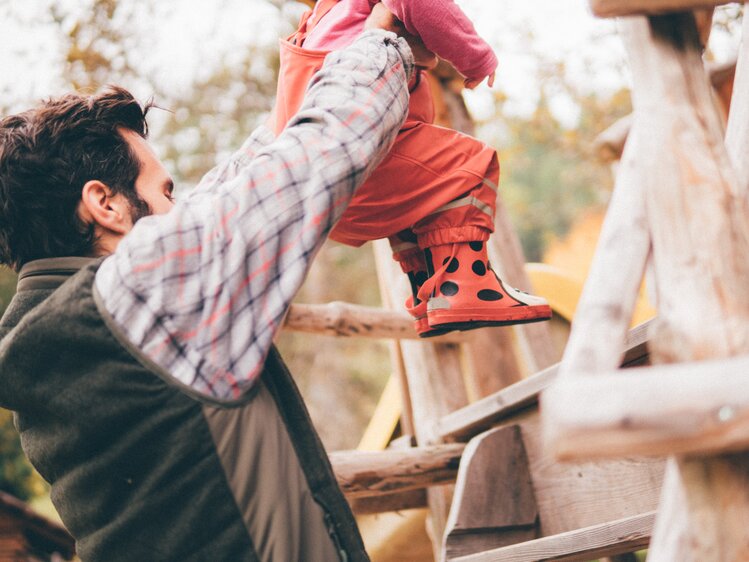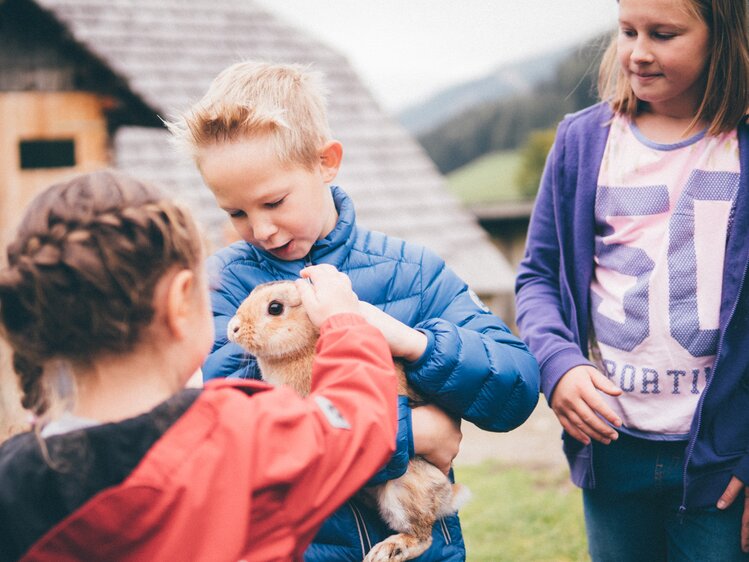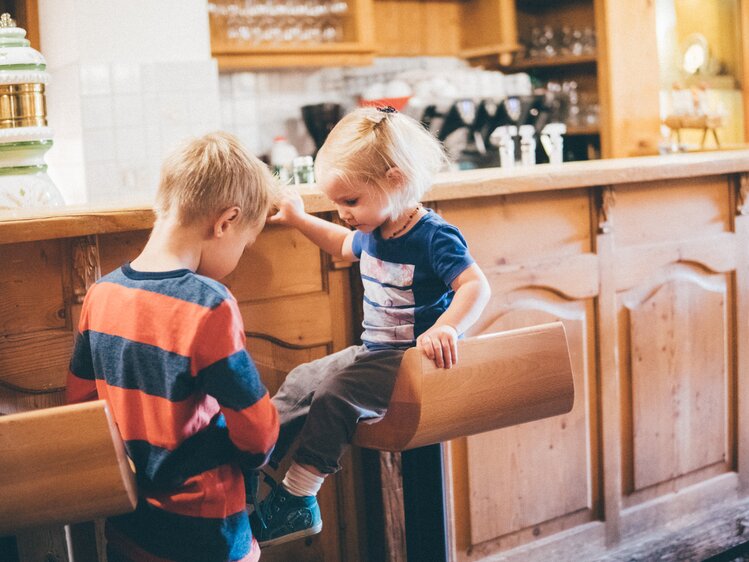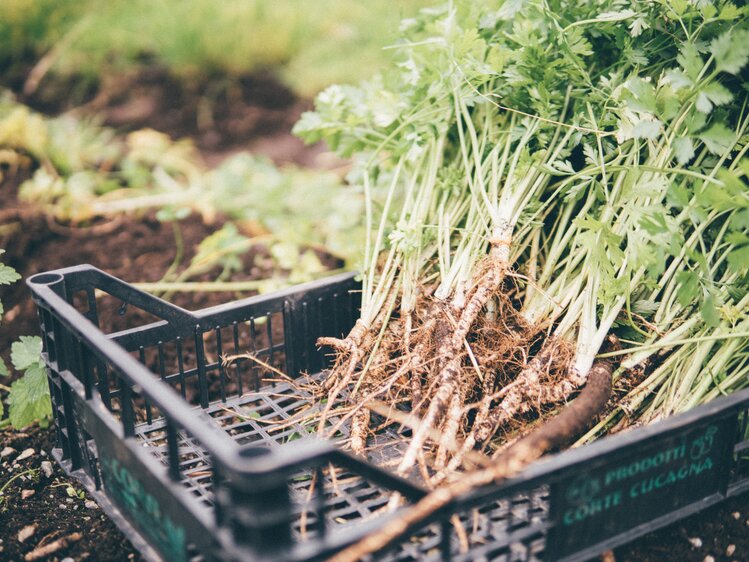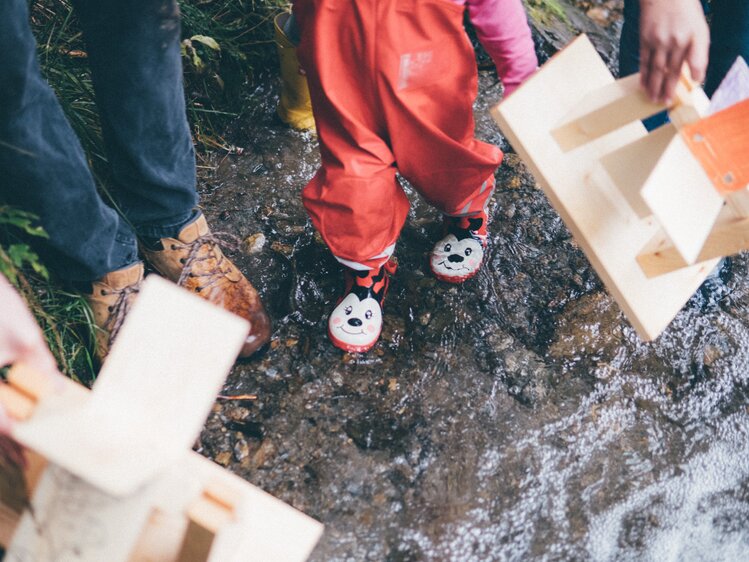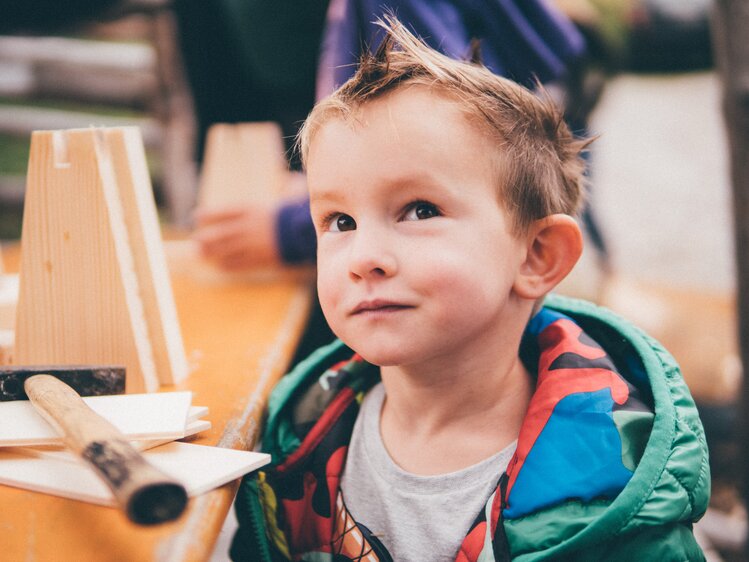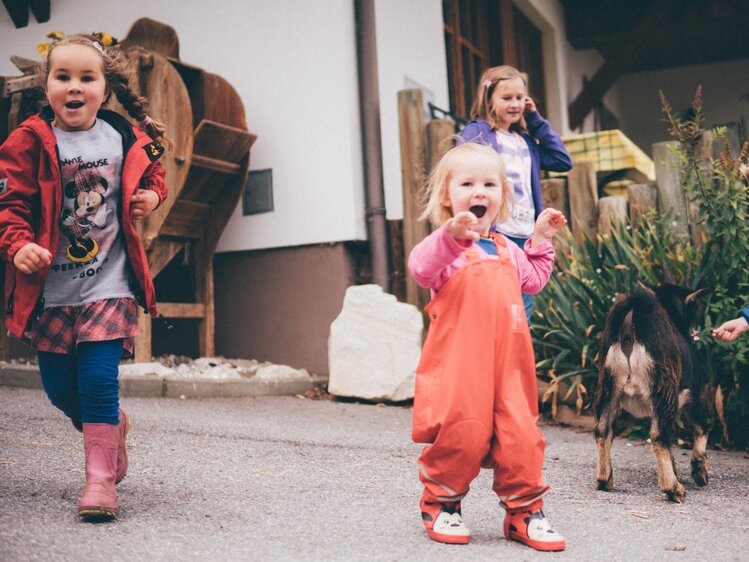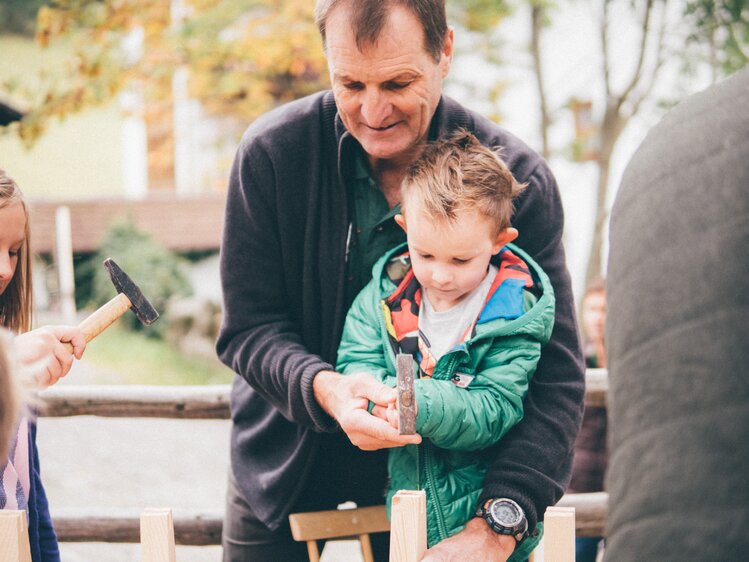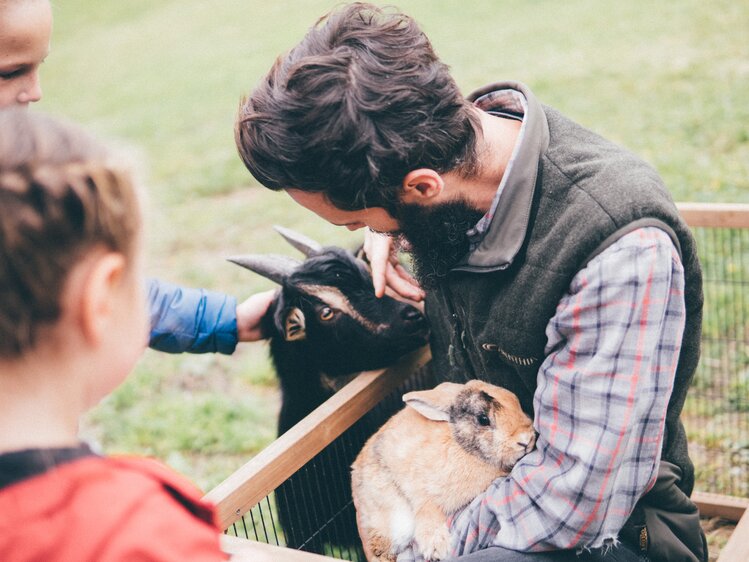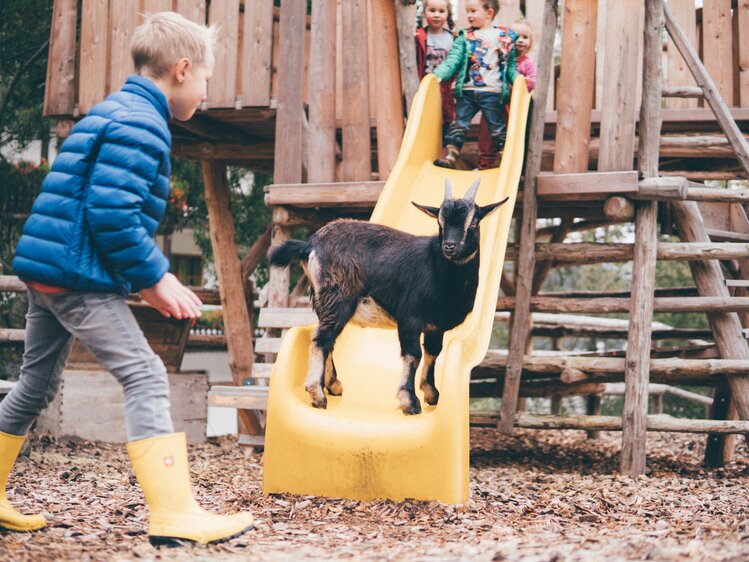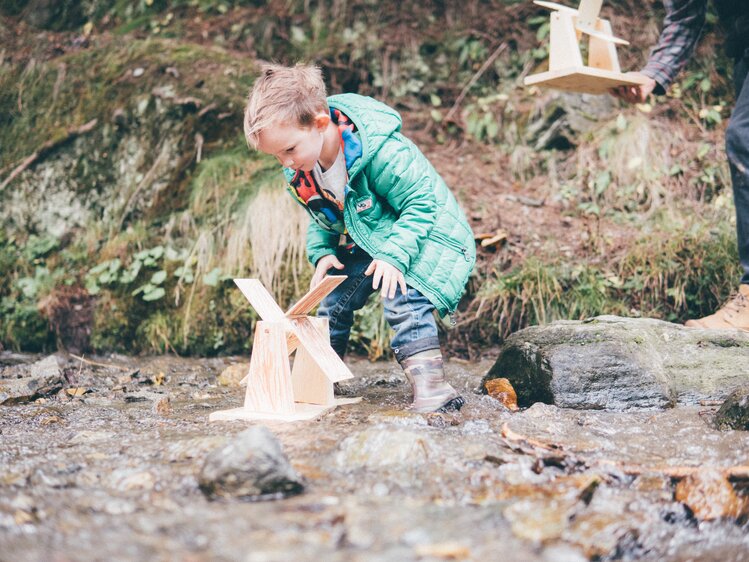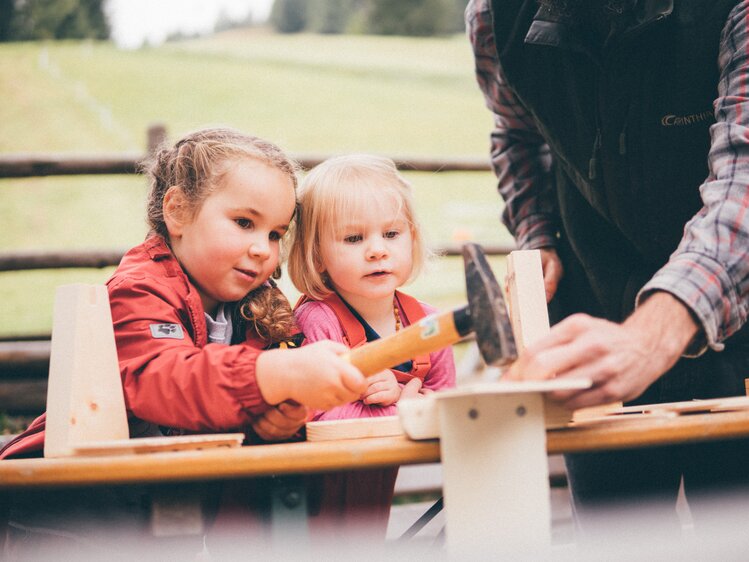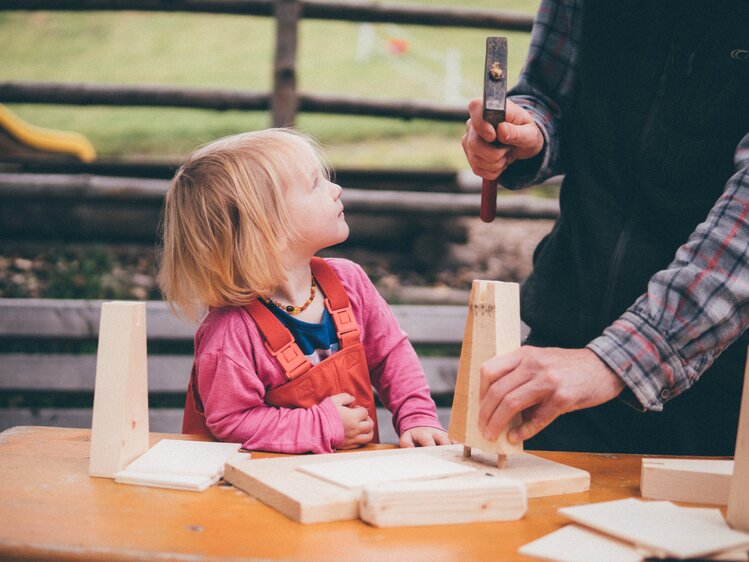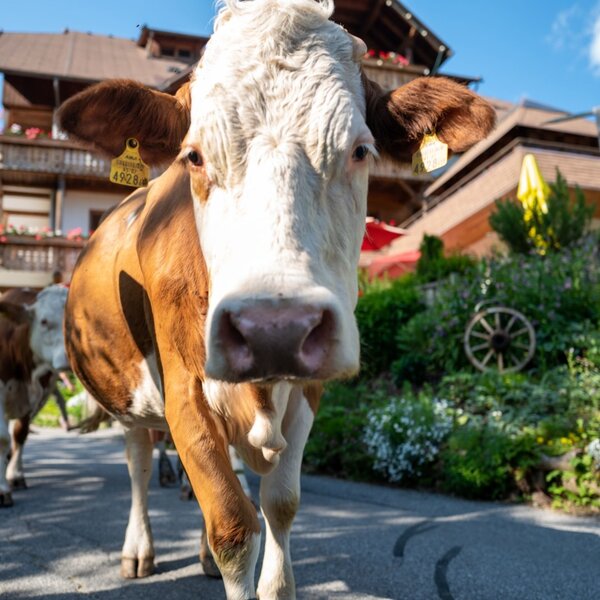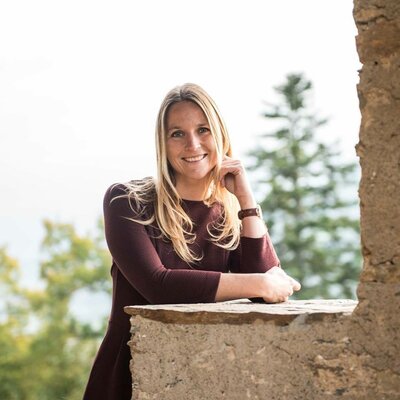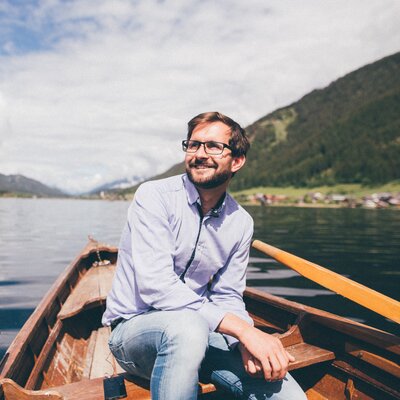This story takes place in the heart of the Nockberge mountains. More precisely, in St. Oswald. A mountain farming village, first mentioned in a document in 1228 and affectionately called "Doaswald" by the locals. The name is derived from the village name, and there even used to be a dialect of its own, "Doaswalderisch". Today, nobody speaks it anymore, but the charm of the old mountain farming village has been preserved to the present day, making it such a wonderful, incomparable gem in the middle of the "Nocken". Those who seek the way here will ultimately find themselves. Because there, almost at the end of the valley, where the mountain slopes gently rise up, lies the Hintereggerhof. The family history dates back to 1470, and today Sepp and Ingrid Hinteregger are at the helm.
Don't forget the roots
The way in which Sepp tackles things is strongly influenced by his grandfather: "We want to continue what our ancestors created with such painstaking work. Development on the one hand and a return to old traditions on the other are not in competition for us, but harmonize on an equal footing." A concept that works. Today, hikers make their way up to the peaks of the Nockberge mountains along the old hollow paths, where grandfathers once transported hay down into the valley on horse-drawn sleighs. Tourism arrived in St. Oswald in 1962 with the first chairlift. The grandparents reacted quickly, moving their bedroom to the second floor and creating space for a guest room. Several guest rooms followed. As tourism grew, so did the business: what once began as a purely agricultural operation developed over the centuries into an organic farm and four-star hotel with a wide range of tourist attractions. "Guests come to us to enjoy the peace and quiet and to recharge their batteries. It can happen that some people feel disturbed at first by the babbling brook and then don't want to miss the sound the next day," explains Sepp.
A little bit of everything, but not too much of anything
Sepp is proud to be a farmer. "As a child, I would often sneak through the cellar to the cows in my stable clothes so that guests wouldn't notice the smell and dirt. Back then, many people didn't even know that the produce all came from the farm. Today, I walk past them with my milk bucket and ask them to come along. I want to give them an insight into our life and work." Anyone expecting a strictly timed weekly program is therefore far from the truth, here nature and the season determine the daily routine. There is plenty to see anyway: mother cows and their offspring on the alpine pastures and meadows, round farm pigs, Peter the goat and fuzzy ponies, all of whom are never at a loss for a cuddle, buzzing beehives and more. "There's a bit of everything, but not too much of anything. I want to show that even a small farm can work," says Sepp, convinced of his idea.
Learning to appreciate nature again
This is reflected in his thoughts for the little guests: "As if it takes more than a few boards and water to encourage children to play." With the help of the adults, a water wheel is quickly put together and placed in the stream, complete with happy children's laughter and excited chatter. "Wet feet too, but that's why there are shoes to change into," laughs Sepp. In general, you have to open the youngest children's eyes to so many things again: "The children are simply not as fit as they used to be. Some of them are walking over hill and dale for the first time, they don't know what's natural, you have to be much more careful." To reawaken these basic instincts, Sepp would like to set up his own children's adventure farm in the near future: He wants to enable children to go into the barn and collect chicken eggs, feed the animals and learn naturally without supervision.
Work is not a burden for Sepp
Nobody counts the extra hours at the Hintereggerhof. "It's our way of life and not a burden," explains Sepp. An office job á la "working nine to five" would be more stressful for him. And when the weather rains on the hay harvest, that annoys him. Relaxing and taking a breather is also possible on a stalking trip with guests: "When you watch the game through binoculars, lingering together at the high seat, that connects you. Many people then suddenly start talking about problems that they would never have talked about otherwise." The rifle can stay in the cupboard, the experience itself is what counts. Whether it's a rough wind, a familiar deer crossing the alpine meadows or a sunrise over the peaks of the Nockberge mountains, according to Sepp, you have to see such things. And feel them yourself. Just talking about it is not enough.
Three sons, one goal
He has passed on his passion and philosophy to his three sons Matthias, Martin and David. They have all been on training and exploration tours around the world, and all three have returned to the farm. They think it's too beautiful here. This is also confirmed by the high proportion of regular guests. The guest children that Sepp once lured onto his lap now come to the Hintereggerhof with their own offspring. And Sepp's sons also want to see their children grow up here: Matthias has been running the Brunnachhof, an alpine inn at 1,750 meters above sea level, for six years, David is actively involved in farming and Martin has countless ideas for developing the farm. He has been away from home the longest, for a total of 20 years. He studied geology in Innsbruck, went on a trip around the world and finally returned home, has been a vegetarian for many years and still stands by his own farm produce. Why not, he says. They give each other space. Will it ever work out for three families? "Time will tell. I would love to raise my children on the farm, but it's not necessarily easier. In a mountain village, where the transport connections are not so flexible, the concept of homeschooling is definitely an issue." And yet Martin has opted for St. Oswald, shows "how beautiful it is" on his website, Facebook and Instagram with videos and photos and is also committed to the region as chairman of the preservation society: "I care about the region, I have nothing to gain if everything goes to the dogs." True words, true essence, clear message: "We do what we can and what we have always done. Farm work has not been taken seriously for a long time, but without us farmers there would be no ski slopes in winter and no mountain pastures in summer. That has to change. It's no coincidence that people go to the forest to find peace and quiet when they're feeling down." And this is exactly where another of Martin's ideas comes in: The development of the Hintereggerhof into a Green Care time-out farm.
Keyword "Green Care"
With a Green Care time-out farm, the resources of a farm are consciously used to promote health and well-being. "The concept can be seen as a farm school for adults, with seminars and workshops," explains Martin. He sees this as an opportunity for the future, which can strengthen the early and late seasons and become independent of external influences, keyword climate change.
The future will bring change at the Hintereggerhof, because father Sepp also knows: "2019 will be my sixtieth birthday, I will have been running the business for 30 years, so it's time to make way for my children. I mustn't overlook the jump. I've passed on the values that are important to me to everyone." Like his grandfather did back then. From generation to generation. Because the past and present here at the Hintereggerhof in "Doaswald" simply get on very well.
Sabine Ertl
www.gedankenschmiede.at, 45 Article(s)



